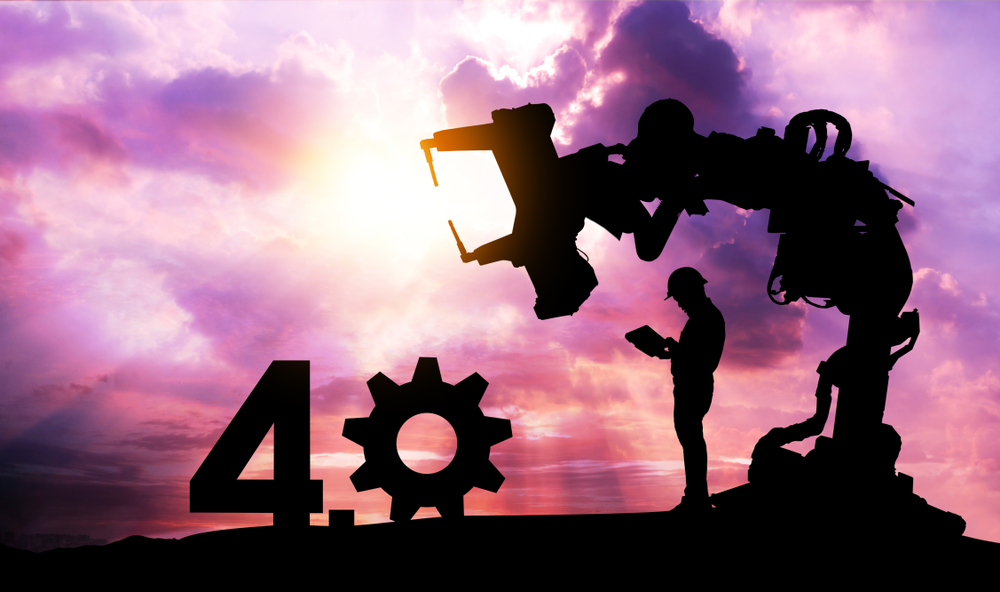Industry 4.0 is quite an old concept in the western world but in India, its implementation is still in the early stages. While conceptually, all sectors were aware about Industry 4.0, it was only the larger players who embraced the change. So, in India, the journey has just begun, and Industry 4.0 has a long way to go.
Sectors like automobiles, beverages, cement, and chemicals have made a huge progress in embracing Industry 4.0, while healthcare, packaged food, and personal care manufacturing are yet to make the shift. In most companies, especially the older ones, the shift is very gradual.
Discovering the Benefits
Enterprises that have started adoption of Industry 4.0 are experiencing drastic improvement in productivity, efficiency and lower wastage on shop-floors. Intelligent factories built using IoT, smart sensors and cloud computing is helping in huge cost reductions. Benefits in terms of remote controlling of production through connected planning and automation have far-reaching effects.
Product design has become much simpler and faster with the new technology. The use of simulation or 3D Printing instead of physical prototyping is helping in reducing time and cost. Going forward, customization and personalization of products is also a possibility. In short, Industry 4.0 has changed the economics of running a manufacturing facility.
Challenges and Obstacles
Cost of imbibing new technology is a major challenge, especially for the MSME sector. It needs some incentives to move towards Industry 4.0 that should be integrated with the larger industries. Secondly, for most players, technology adoption is happening in bits and pieces that need to be integrated faster. The most important challenge is, however, changing the culture and gaining the trust of the people.
One must never forget that people are the backbone of this journey. Companies must convince the workforce that the organization’s benefit is linked to their benefit. They must stop seeing technology as a threat to their livelihood. Reorganizing the people, reskilling them and deputing them to other areas where their intelligence is utilized in a better manner is an endeavor of utmost importance.
Role of Technology Service Providers
Service providers providing the tech-support in implementation of Industry 4.0 are in a position to accelerate the adoption of technology. If they embrace Industry 4.0 first, then leveraging their knowledge and understanding, companies can create a viable business case and imbibe the new technology faster. In such a scenario, the period of complete transformation will be much shorter.
Emerging Trends
There has been a radical change in the way we think about mobility. Connected car, self-driven car or robot access is an area where great progression will be seen in the coming days. More stress towards sustainable business development is a trend gaining importance globally. Rise of the smart worker is another important trend. Going forward companies will need more cerebral workers who can act as enablers of technology. Education systems would also be revamped as per the new industry requirement, where proper knowledge and skilling will be needed.
Towards Industry 5.0
Covid crisis has already spurred the adoption of Industry 4.0 technologies much faster across all industries. In this new order humans and technology work together and if this collaboration is used properly, we will achieve monumental progress in manufacturing. It is essential to embrace all the steps of Industry 4.0 as it will lay down the foundation stones on which Industry 5.0 will be built.
The above article is a compilation of thoughts as put forth in the session “Is industry 4.0 already a passé?” moderated by Robert Joseph, Former Director, Industrial Strategy for Industry 4.0, Stanley Black & Decker, participated by D.S. Ravindra Raju, President, Deepak Fertilizers and Petrochemicals Corporation, Sanjay Singal, Chief Operating Officer – Dairy & Beverages, ITC, Sanjeev Agarwal, Chief Manufacturing Officer, Lava International, Anil Rao, CEO, NTT Data Business Solutions, and Krishna Bhojkar, Head Manufacturing Engineering, Skoda auto Volkswagen India.



